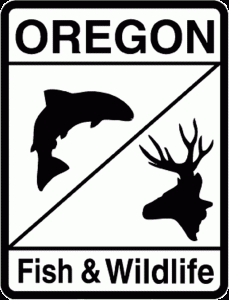Oregon Fish and Wildlife Commission will Meet to Discuss Governor’s Proposed Solutions for Lower Columbia River Fisheries Management
OutdoorHub 08.13.12

The Oregon Fish and Wildlife Commission will meet via teleconference on Tuesday, Aug, 14 to discuss the recent letter from Governor John Kitzhaber to reform fisheries on the lower Columbia River that includes phasing out the use of non-tribal commercial gill nets.
The meeting will begin at 2 p.m. ODFW will offer an audio stream so that the public can listen in on the discussion. The link for the audio stream is http://www.dfw.state.or.us/agency/commission/.
In an Aug. 9 letter, the Governor requested the Commission and ODFW to work with their counterparts in Washington to complete the necessary rulemaking before the end of 2012 that includes the following key elements:
- Prioritize selective recreational fisheries in the mainstem Columbia River and commercial fisheries in off-channel areas of the lower Columbia River.
- Phase out the use of commercial gill nets in the mainstem Columbia River and transition the use of gill nets to off channel areas.
- Allocate a majority of available salmon to the sport anglers.
- Improve off channel fisheries by increasing hatchery production in those areas and by enhancing area boundaries and/or locations.
- Continue development and use of alternative selective fishing gear for commercial mainstem fisheries, and implement these fisheries when recreational fishery objectives are met.
According to Commission Chair Bobby Levy, the meeting on Tuesday will be a first chance for Commission members to discuss the Governor’s letter, be briefed by staff on the issues, and identify some first steps.
“The Governor has turned to the Fish and Wildlife Commission to come up with a solution and that’s what we intend to do,” said Levy. “We will work with our Washington counterparts and stakeholders and together develop rules that reflect the Governor’s proposals as well as the many legitimate interests among the public.”
While Tuesday’s meeting will be listen-only for members of the public, Levy said there will be substantial opportunity for public comment as the process progresses.

